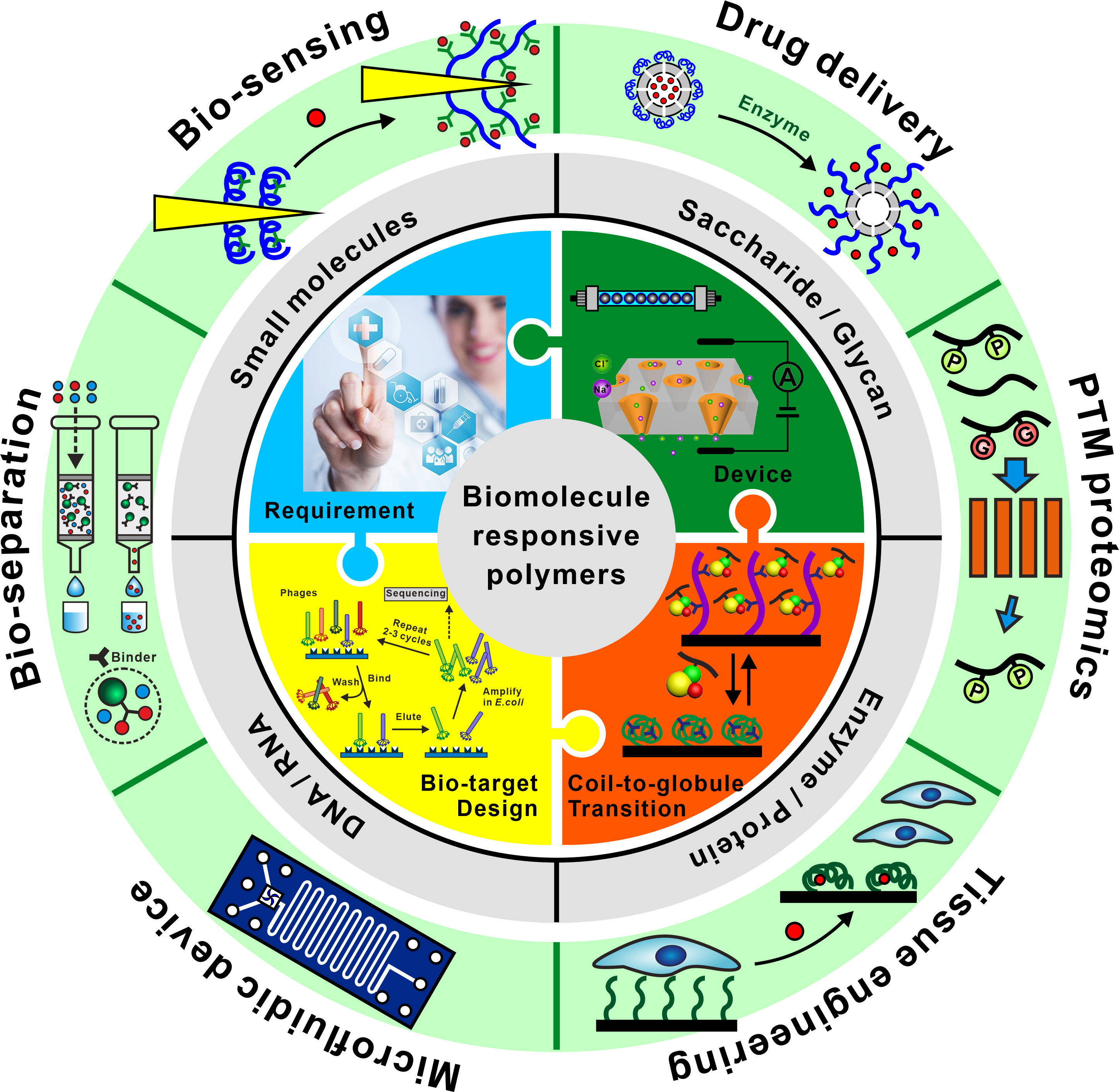Biomolecule-responsive polymers and their bio-applications
Time:2024-07-27 18:36 Author:Yuting Xiong
Yuting Xiong, Minmin Li, and Guangyan Qing*
Interdisciplinary Materials., 2024, 10.1002/idm2.12210.
https://doi.org/10.1002/idm2.12210
Precise recognition and specific interactions between biomolecules are key prerequisites for ensuring the performance of all actives within living organism. The convergence of biomolecular recognition systems into synthetic materials could endow the materials with high specificity and biological sensitivity; this, in turn, enables precise drug release, monitoring or detection of important biomolecules, and cell manipulation through targeted capture or release of specific biomolecules. Meanwhile, from the perspective of materials science, the application of conventional polymers in practical biological systems poses several challenges, such as low responsiveness and sensitivity, inadequate targetability, insufficient anti-interference capacities, and unsatisfactory biocompatibility. These problems could be partly attributed to the polymers’ weak discrimination abilities toward target biomolecules in the presence of interfering substances with high abundance. In particular, the proposition of “precision medicine” project raises higher demands for the design of biomaterials in terms of their precision and targetability. Therefore, there is an urgent demand for the development of new-generation biomaterials with precise recognition and sensitive responsiveness comparable to biomacromolecules. This promotes a new research direction of biomolecule-responsive polymers and their diverse applications. This review focuses on the origin and construction of biomolecule-responsive polymers, as well as their attractive applications in drug delivery systems, bio-detection, bio-sensing, separation, and enrichment, as well as regulating cell adhesion.
